Essential Minerals Required for Human Body to Survive – Healthy & FIt
Reviewed by: Dr. T S Deepthi Sarojini | Author: Manoja Kalakanti
Human body requires abundant amounts of minerals for proper functioning. Here we tell you the most essential minerals required for human body, to survive in their day to day life. Minerals are used to promote health and help to carry out various body functions. Minerals like calcium, phosphorous, sodium, potassium and magnesium are considered as major minerals. Whereas zinc, iron, manganese and etc. belong to trace minerals. Everyday along with vitamins, a proper amount of essential minerals also must be consumed. If you make sure to have these minerals in your balanced diet chart, then you always be healthy and fit. So check out the most essential minerals required for human body in day to day life.
Essential Minerals Required for Human Body
Calcium
Requirement: Everyday our body requires 800mg – 1300mg of calcium. Out of this, approximately 99% of calcium in our body is stored in our teeth and bones.
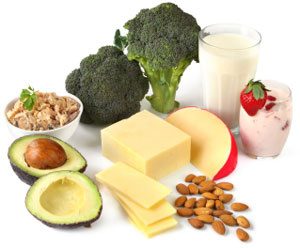
Importance: Calcium plays a vital role in our body as it requires some base for building bones, muscles, heart and digestive system. It is also very essential for the formation of cell membranes. Calcium phosphate is as important as it is used to give bones their structure, strength and density.
Deficiency: If calcium is consumed in fewer amounts, then the body starts taking calcium from our bones and performs the essential functions. This leads to the deterioration of our bones and teeth. Calcium deficiency for a longer period leads to various health problems. This deficiency in calcium is dangerous for menopausal women as this will develop a risk of getting Osteoporosis.
Over dosage: Excess of calcium leads to hypercalcaemia which means, high calcium levels in blood. This leads for the creation of calcium in our blood cells and also results in poor kidney function. Hypercalcaemia makes us feel lethargy, fatigue, bone pain, depression, and nausea. Also excess urination is one of the symptoms of calcium overdose.
Calcium rich foods: In order to consume a proper amount of calcium, we must include foods which are calcium rich to our regular diet. Everyone knows that milk and other milk products are a good source of calcium. Apart from these, there are few other sources which contains rich amount of calcium. Sources like green leafy vegetables, nuts like almonds, seeds, beetroot, soya, green peas etc., will help in improving the calcium levels in our body.
Related Post: Yummy foods to reduce belly fat
Phosphorus
Requirement: Phosphorus is one of the essential minerals required for human body to be fit & healthy body. Every day we must consume about 800mg of phosphorous, as it is a mineral which performs various body functions.
 Importance: Phosphorus combines with calcium and forms calcium phosphate, which is very important for bone formation and gives strength to the bones. Around 80% of phosphorous is stored in our bones and teeth.
Importance: Phosphorus combines with calcium and forms calcium phosphate, which is very important for bone formation and gives strength to the bones. Around 80% of phosphorous is stored in our bones and teeth.
Deficiency: If phosphorus is inadequate, then it develops stiff joints and makes the bones fragile. This may lead the bones to break very easily. This deficiency of phosphate is known as hypophosphatemia. Decrease of phosphate levels in blood is associated with the increase in phosphate levels in urine. The major signs of this deficiency are mental status changes, muscle dysfunction and weakness.
Over dosage: If the phosphorus intake is elevated, then it leads to hyperphosphatemia. This can also be caused by taking oral sodium phosphate solutions. High precipitation of phosphate will lower the calcium levels in our body. The only way to treat this is to keep dietary restriction of phosphate.
Phosphorus rich foods: The food which we consume regularly produces enzymes. These enzymes are converted into energy, with the help of phosphorous. It also plays a vital role in the process of metabolism and makes up about 1% of total body weight. Phosphorous is present in both animal and plant foods like milk (and its products), seeds, fish, eggs, leafy vegetables, oats, dry fruits, bread, fresh fruits, carrots, soya etc.
Potassium
Requirement: Potassium is one of the most significant mineral present in our body. Everyday around 2500mg to 4700mg of potassium must be included in our regular diet. Potassium can be absorbed easily and it is one of the most soluble mineral and is easily lost in cooking and processed or canned foods.
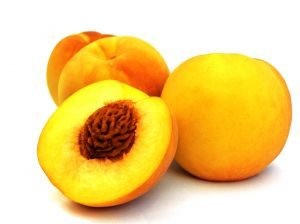
Importance: Our body requires potassium as it helps to build proteins and muscles, maintains proper body growth, break down and use carbs. This mineral is essential to perform both electrical and cellular functions in our body. According to the recent survey, consuming high amount of sodium with less amount of potassium will elevate our blood pressure.
Deficiency: Consuming very low or very high amount of potassium leads to various health problems. Inadequate amount of potassium levels in our blood leads to hypokalemia. This deficiency makes our muscles weak, hypertension, depression and raises the blood pressure slightly. Also leads to abnormal heart beats.
Over dosage: Human body depends on potassium balance for a healthy nervous system and regular contractions of our heart. Too much potassium in blood leads to hyperkalemia. This leads to dangerous contractions of the heart. During weight loss programs most of them will feel weakness or fatigue and this can be reduced by taking proper amount of potassium.
Potassium rich foods: This essential and significant mineral is found in various foods. Foods with high concentration of potassium and less in sodium will help to prevent hypertension. In general, potassium is present in foods like vegetables, fruits, legumes, papayas, potatoes, spinach, dry beans, cabbage, turmeric etc. Garlic and radish are also good sources of potassium.
Related Topic: 8 golden rules for quick weight loss
Sodium
Requirement: Sodium, also referred to as Common Salt, is considered to be one of the most essential minerals required for human body. Our regular diet must include around 1500mg to 2500mg of sodium. Sodium is a systemic electrolyte.
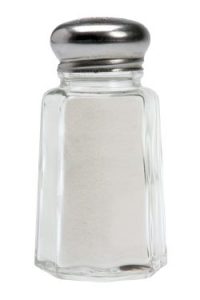 Importance: Sodium regulates the total amount of water and pH level in our body and also plays a vital role in various critical body functions nerve functioning and muscle contractions.
Importance: Sodium regulates the total amount of water and pH level in our body and also plays a vital role in various critical body functions nerve functioning and muscle contractions.
Deficiency: Taking very less concentration of sodium leads to hyponatremia. This may be a result of excess amount of water in the body which flushes the sodium levels. This deficiency leads to headaches, muscle cramps, fatigue, and dehydration. Overdose of sodium leads to hypernatremia. This leads to lethargy, increases irritation and can also cause other health problems.
Over dosage: Sodium is a mineral which must be taken in minimum amounts else it leads to high blood pressure and hypertension. Too much consumption of salt also leads to liver cancer and various heart diseases. Human body contains approximately 1.3g of sodium which is mostly found in our bones and other fluids in our body.
Sodium rich foods: Salt is a great source of sodium. Other sources which contain sodium are carrots, radish, beetroot, milk, eggs, pickles or refined foods, cereals, bread etc. While performing any kind of activity like sports or exercises we lose a lot of water through sweat and dehydrate our body as we lose sodium. Hence it is always recommended to drink plenty of water.
Iron
Requirement: Iron which is considered to be a trace mineral also plays a vital role to perform various body functions. Healthy body requires sufficient amount of iron. Everyday our body requires around 10 mg to 18mg of iron. 70% of iron is stored in hemoglobin and 26% of it is stored in liver, spleen and bones.
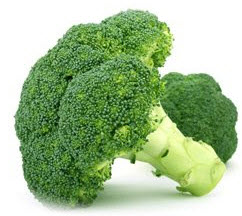 Importance: Iron is a mineral which is responsible for the conversion of blood sugar into energy. Iron is essential for proper functioning of our immune system. This mineral plays a vital role during our childhood and also during pregnancy. This nutrient helps to carry oxygen throughout the body.
Importance: Iron is a mineral which is responsible for the conversion of blood sugar into energy. Iron is essential for proper functioning of our immune system. This mineral plays a vital role during our childhood and also during pregnancy. This nutrient helps to carry oxygen throughout the body.
Deficiency: Our body loses iron through urination, sweating, bleeding and other possible ways. If the intake of iron is low then, it leads to anemia. This deficiency will decrease the amount of red blood cells (RBC’s) present in our blood and also there won’t be proper transport of oxygen throughout the body, hence there will be lack of oxygen. This deficiency is one of the blood disorders. Anemia makes us feel weak and fatigue which also results in poor concentration.
Over dosage: Excess amount of iron leads to iron overload in the body. This is a genetic disorder which might result in repeated and excess transfusion of blood.
Iron rich foods: Iron is present in various foods like grains, eggs, dry fruits, beans, red meat, green leafy vegetables, cumin, asparagus, olives, tomatoes, fish, shrimp etc. Athletes must consume adequate amount of iron-rich foods.
Related Post: Best kiwi fruit shake smoothies
Magnesium
Requirement: Magnesium is the most valuable and abundant mineral in order to maintain good health. Our body requires about 350 mg to 420 mg of magnesium per day. 50% of magnesium is stored in our bones whereas the remaining 50% is stored in the cells of our body. Magnesium helps to activate the enzymes in our body and also regulates the electrolyte balance.
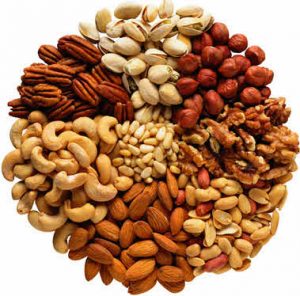 Importance: Magnesium is used to regulate the blood sugar levels and also helps in the functioning of heart and immune system. This mineral also manages hypertension, relaxation of bones, muscles and also tackles diabetes. Adequate intake of magnesium keeps our bones strong. Magnesium along with vitamin B-6 helps to prevent kidney stones.
Importance: Magnesium is used to regulate the blood sugar levels and also helps in the functioning of heart and immune system. This mineral also manages hypertension, relaxation of bones, muscles and also tackles diabetes. Adequate intake of magnesium keeps our bones strong. Magnesium along with vitamin B-6 helps to prevent kidney stones.
Deficiency: Low intake of magnesium leads to hypomagnesaemia which is nothing but magnesium deficiency. Magnesium deficiency affects every organ of the body. Deficiency of magnesium weakens our bones, teeth and also leads to muscle cramps, tension, backache, headache and also other joint pains. This might also affect the cardiovascular system.
Over dosage: Over intake of magnesium will lead to hypermagnesaemia. This is caused when the kidney excretes excess amount of magnesium. Some of the symptoms of magnesium overdose are weakness, vomiting, improper respiration, hypotension etc.
Magnesium rich foods: Magnesium is found abundant in foods like sea vegetables, soya beans, milk, leafy vegetables, dry fruits, meat, ginger, cloves etc. Performing over exercise will destroy the magnesium levels in our body.
Manganese
Requirement: Manganese is one of the most important trace mineral which helps to improve our metabolism. Human body requires around 2500mg of manganese. This mineral along with vitamin-B also helps to activate various enzymes in our body, especially the one which helps in the formation of urea.
 Importance: Manganese also improves the metabolism rate in our body. Proper intake of manganese helps in proper digestion and also reduces hypertension. Manganese is mineral which is used to balance zinc and copper. This is one of the essential mineral which deals with health problems like diabetes and neurological disorders.
Importance: Manganese also improves the metabolism rate in our body. Proper intake of manganese helps in proper digestion and also reduces hypertension. Manganese is mineral which is used to balance zinc and copper. This is one of the essential mineral which deals with health problems like diabetes and neurological disorders.
Deficiency: Manganese deficiency leads to variety of health problems, as this plays a vital role in proper growth of the body. This deficiency results in joint pains, osteoporosis, diabetes and many other health problems.
Over dosage: Excess amount of manganese in our body causes a toxic condition known as manganism. If there is overdose of manganese in our diet then, our body will not be able to recognize iron. Some of the symptoms of this are mood swings, decrease in response speed, compulsion etc. Always consume proper and limited amount of manganese in your diet.
Manganese rich foods: Brown rice, beans, pineapple, raspberries, strawberries, cinnamon, squash, turmeric, spinach etc. are foods which contain rich and high concentration of manganese.
Hence, it is always recommended to add up these minerals in to your regular diet along with the other vitamin. This keeps you fit and healthy for much longer period. Remember that you must include limited amount of these minerals, not more or less. To know more about the essential minerals required for human body, just drop a comment and we shall get back to you soon.

Manoja Kalakanti